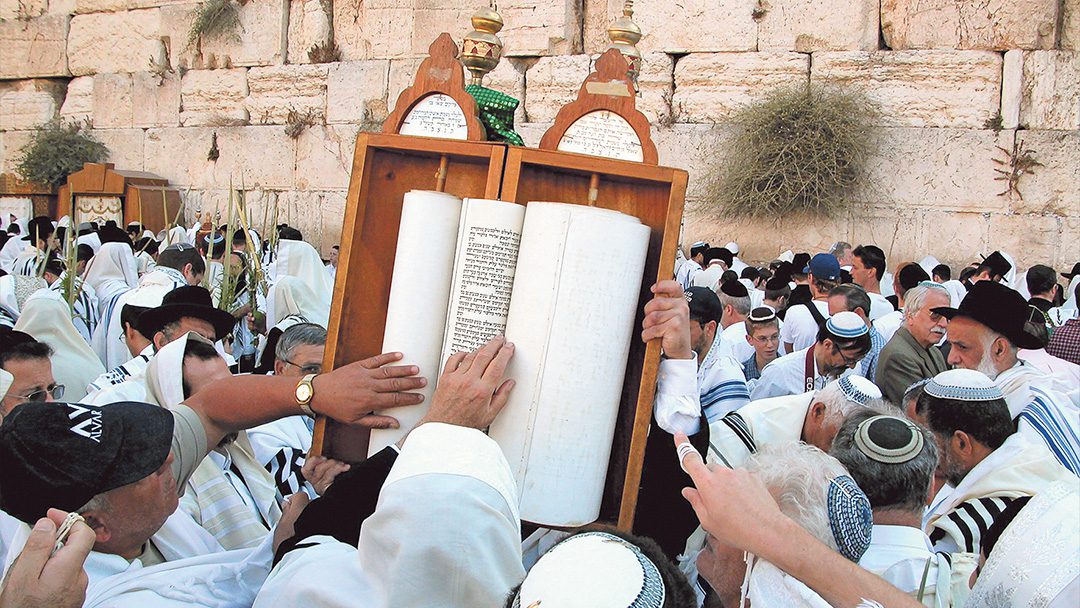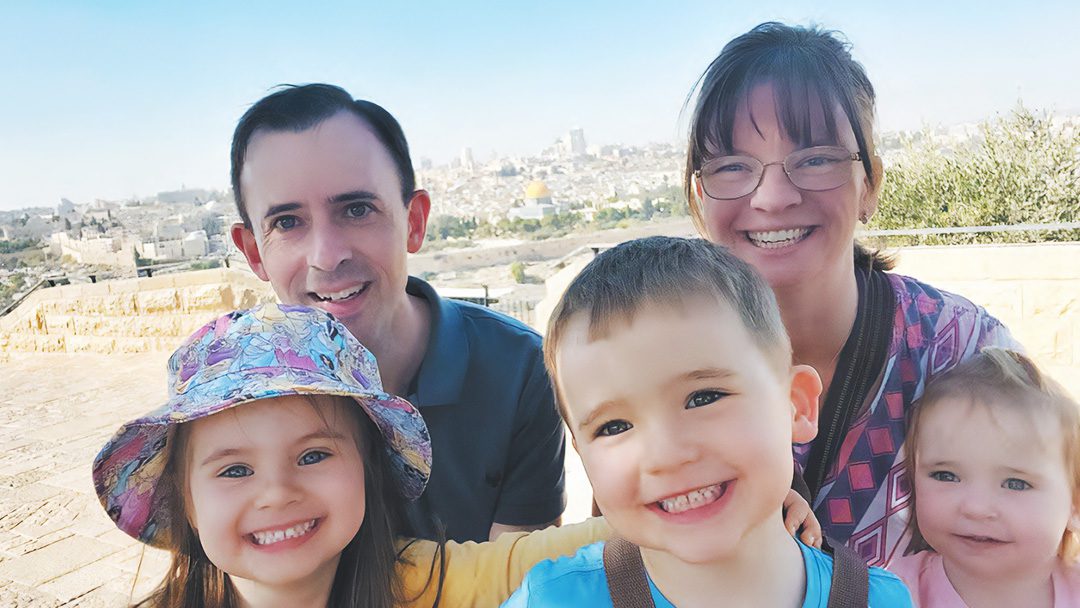Have you heard of the term Replacement Theology? I’m sure you are familiar with this term, but it is the idea that the Christian Church has replaced the nation of Israel in God’s plan. In essence, it suggests that the Jewish people have been rejected by God due to their rejection of Jesus. According to this view, the promises and blessings originally given to the people of Israel in the Old Testament are now transferred to Christians. The Church is seen as the new and true Israel, and the covenant made with Israel is thought to have been abrogated by the New Covenant established through Jesus.
This view is incredibly dangerous and may have made some sense prior to 1948, but it is indisputable, especially given recent events, that Israel is both a physical people and land, and that God’s covenant to Abraham of both a people and land remains steadfast. Until day and night cease (Genesis 8:22), His covenants remain perpetual and steadfast.
In the book of Daniel (ESV), we can examine the backdrop of an apocalypticstyle dream in chapter seven, and in verse 25, it says: “And he shall speak great words against the Most High, and shall wear out the saints of the Most High, and think to change times and laws: and they shall be given into his hand until a time and times and the dividing of time.”
This dream indicates that one of the central characters, a type of antimessiah, will speak against the Most High and think to change both the TIMES and LAWS.
This is important territory for us to understand, as a change can sometimes be a subtle shift or an outright ‘replacement.’ The acceptance of any change or replacement is a matter of careful education and adoption over time, and Daniel is warning those who read to watch for a change or replacement of the TIMES and LAWS.
The area for focus in this article is the ‘laws’ of God—or, more specifically, the Torah. Have you heard the saying, “Jesus has done away with the law?” Is it really conceivable that Jesus could have done so? Did He have the authority to do so? Let’s explore a couple of Jesus’ own statements on this.
“Do not think that I have come to abolish the Law or the Prophets; I have not come to abolish them but to fulfil them.” Matthew 5:17 (ESV)
You may have heard this taught in various ways, but you cannot deny that Jesus clearly states that He has not come to abolish the Torah or the prophets. Rather, He fulfils them. He keeps them so that He can be the sinless Messiah.
“The Law and the Prophets were until John; since then, the good news of the kingdom of God is preached, and everyone forces his way into it. But it is easier for heaven and earth to pass away than for one dot of the Law to become void.” Luke 16:16 – 17 (ESV)
Let’s examine this together. The Torah and Prophets were, until John, meaning that they point towards the Messiah. John recognised, baptised, and anointed Jesus, and at this moment, the Father confirmed Jesus’ Messiah status by voice and with the sign of the Holy Spirit. Then, a clarifying statement proceeds in verse 17, as if to say, although the Messiah is here, it is easier for everything else to be destroyed than one YOD from the Torah. In other words, let’s link the Messiah and the Torah together. He is the King of the Kingdom of God, and the Torah are His instructions of governance for the Kingdom of God.
“And one of the scribes came up and heard them disputing with one another, and seeing that he answered them well, asked him, “Which commandment is the most important of all?” Jesus answered, “The most important is, ‘Hear, O Israel: The Lord our God, the Lord is one. And you shall love the Lord your God with all your heart and with all your soul and with all your mind and with all your strength.” Mark 12:28 – 30 (ESV)
We are very good at taking the first part and summarising the most important command as loving the Lord your God and then the second command in verse 31 as loving your neighbour as yourself, but we need to recognise that Jesus is not being original here. He is quoting from the Torah, and His direct quote comes from Deuteronomy 6:4-7, which says: “Hear, O Israel: The Lord our God, the Lord is one. You shall love the Lord your God with all your heart and with all your soul and with all your might. And these words that I command you today shall be on your heart. You shall teach them diligently to your children and shall talk of them when you sit in your house, and when you walk by the way, and when you lie down, and when you rise.”
These are not the words of a Torah canceling Messiah. These words of Jesus affirm the what and how of loving God and, then, the significance of continuing to teach these words of the Torah, the words of the Kingdom, to each generation.
So what are we to do? Especially for Gentiles, we are invited, not out of obligation, but as part of an ‘outworking’ of our faith, to listen to, explore, and immerse ourselves in understanding the Torah—not to the point, as the book of Galatians deals with, of becoming a Jew through ritual conversion (circumcision). One’s ‘calling’ or ‘nature’—being Jew or Gentile, cannot attain resurrection, and Paul taught to remain true to one’s calling, which is not one’s vocation but physical birth status—Jew or Gentile. Being born again or resurrected is a matter of faith and obedience; however, Paul raised this significant issue to the Jerusalem council, overseen by James, Peter, and John in Jerusalem.
Therefore, my judgment is that we should not trouble those of the Gentiles who turn to God, but should write to them to abstain from the things polluted by idols, and from sexual immorality, and from what has been strangled, and from blood. Acts 15:19 – 20 (ESV)
This ruling for Gentiles deals with how Jew and Gentile will be able to live in community together, both God-fearing Gentiles and the Jewish people. The commonality is faith in Jesus as the Messiah. However, most teachers and preachers will end this ruling here, but James continued with a qualifier and, in verse 21, says:
“For from ancient generations Moses has had in every city those who proclaim him, for he is read every Sabbath in the synagogues.”
In other words, once a God-fearing Gentile comes to faith in Jesus as Messiah, let him/her take on these four commandments that will allow appropriate community fellowship according to God’s standard (Leviticus 17,19 and Acts 15), but know that as they continue to fellowship, every Sabbath, they will also come under the instruction of the Kingdom of God, the Torah (Moses).
How often has verse 21 been missed from our teaching? How often have we disregarded or changed our view of the Torah to fit the narrative that excuses us from the instructions of the Torah (which are the instructions of the Kingdom of God).
Remember Daniel 7:25? The role of this ‘anti-messiah’ will be to try to change the times and laws of God. Is it possible that we have not only seen the strategy of the enemy unfold to ‘replace’ the people of God (Jews with Christians), and is it possible that we have seen the strategy of the enemy unfold to ‘replace’ the appointments of God (Passover with Easter, Tabernacles with Christmas etc), and is it possible that we have seen the strategy of the enemy unfolding over the millennia to replace the ‘laws’ or ‘covenant’ of God (Old Covenant with New Covenant)?
I do not deny the presence and power of the New Covenant (Ezekiel 36 and Jeremiah 31), but merely highlight that the fulfilment of the New Covenant will occur when you and I are resurrected, and God’s covenants until day and night cease will remain in full effect. That is the nature of a covenant-keeping God, for should the alternative be true, He would be a liar— which He is not. As the scripture says in Hebrews 13:8 (ESV); Jesus Christ is the same yesterday, today, and forever.
If Jesus was the word at the beginning, He was there when the world was created, He was there when the Torah was given to Moses, and He was there when resurrection was secured. He is unchanging in His covenants—For He is not a liar.
“God is not man, that he should lie, or a son of man, that he should change his mind. Has he said, and will he not do it? Or has he spoken, and will he not fulfil it?” Numbers 23:19 (ESV)
If you would like to explore more about the restoration of things that must take place before Messiah Jesus returns, we have a FREE 14-part mini-series called RESTORATION that you can watch. Visit www.kc.org.au/courses












0 Comments